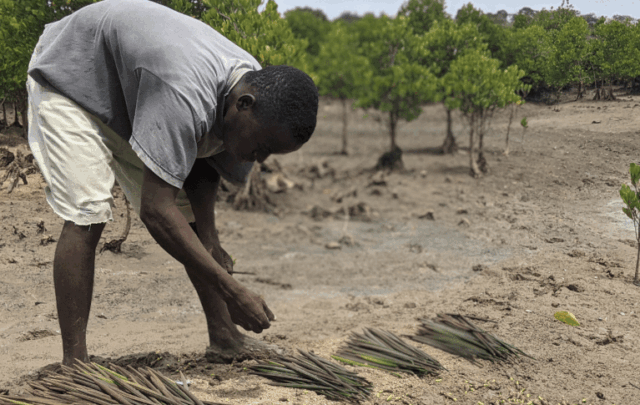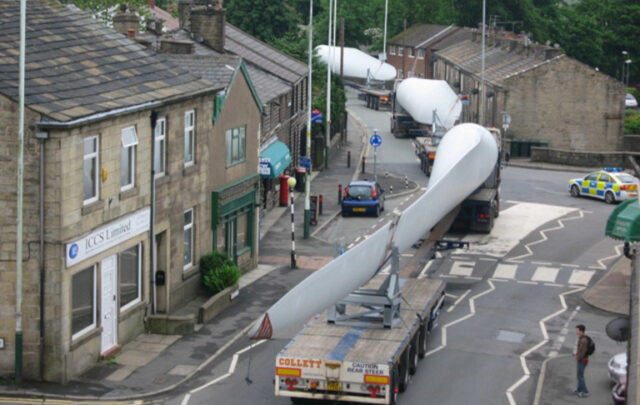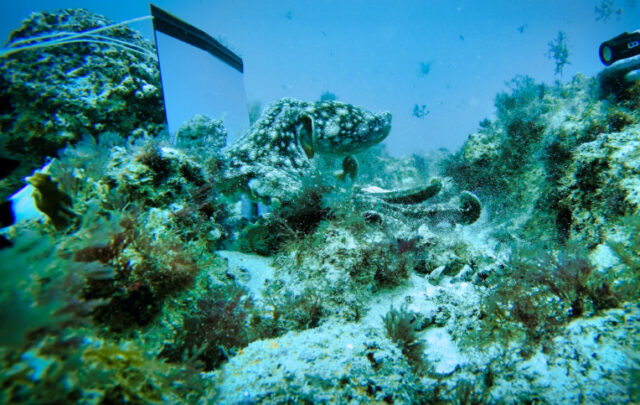Recently I been seeing something with my own eyes I haven’t seen for thirty years, other than on a television – gas lines. With electricity out in many areas, the transportation infrastructure damaged and two refineries shut down, this should not be a surprise. And just as expected, electrical power is being brought back to darken areas, repairs are being made where needed to bring back our transportation network and the shuttered refineries are likely to be running again soon.
But how many people are going to have a very difficult week or two before they can return to their homes? How many people now have no homes to which to return? How many communities – from streets to whole towns – found themselves cut off from services which might take a week or more to restore.
It was only the luck of the draw that we did not experience this during the hurricane that occurred last year. Remember that hurricane spared the coastline mostly, but was devastating to upstate areas. No one can predict when another hurricane or superstorm might hit this area. But there an overwhelming scientific agreement that the once so called 100+ year storms will be occurring far more frequently in the future.
Despite the apparent pleasure that fate takes in making people who make predications within specific timeframes look ultimately foolish, I will tempt fate by making such a prediction. Within the next decade we will see another event in this area creating a disruption similar to or greater than what Hurricane Sandy caused. In fact we may see more than one. The disruption may or may not be due to another storm. A financial collapse, like the one averted in 2008, could create the same supply line disruptions that this storm created, but throughout the nation. And it too could last for weeks, if not longer, before a new financial regime is cobbled together. And please remember that, unlike a hurricane, a financial collapse does not directly destroy anything that is real.
I heard a comment on the radio a day or two ago that raised a very important point. In this age of austerity, where governmental budgets at the state and local level are stretched to the breaking point, how well will we be able to bear the cost of rebuilding for this storm that is already in the tens of billions of dollars and growing. Remember that the condition of the infrastructure in this country is already essentially a scandal – will a new Tappan Zee bridge be built before the old one falls down? What wouldn’t be repaired or maintained because we had to rebuild after Sandy’s destruction?
I want to ask a question here. We built all this infrastructure in this country – the roads, the bridges, the dams and so on – why can’t we maintain them? After making a clear prediction about the future, I will be even bolder (and probably more foolhardy) and give an answer to this question: It is fundamentally because our culture does not understand what wealth is. Hint, it’s not pieces of paper with images of dead Presidents on it, or digital representations thereof.
Another question will make this answer clearer – are we wealthier now then during the Great Depression? Most people would say yes, but I have a different answer. No, we are a poorer society today, than during the Great Depression. During the Great Depression we had a seemingly endless supply of cheap oil, natural gas, coal and mineral ores, the world’s greatest acreage of naturally fertile land and many other advantages. During the Great Depression we simply had a financial system that had seized up due to foolishness and mismanagement. Today we may have again a foolishly mismanaged financial system, but we have only the dredges left in terms of oil, natural gas and to a significant extent coal. Shale oil, shale gas, tar sands, mountain-top removal – no matter how much lipstick is applied to them, them are still just the dredges of our fossil fuel inheritance. The same is true of many of our mineral ores. A similar situation exists for our farm land, much of which is sterile and chemically-addicted although it can be revived with much work.
That financial crisis that was averted in 2008, and which I feel will still come, where gazillions of dollars of paper wealth would have gone poof and disappeared, would have been simply reality finally "marking to market" what these financial asserts are really worth in terms of what our true wealth actually is.
This is a far different view of wealth than is given in any current economics text. It is one that is much closer to the traditional views of wealth than our modern one where many learned people do claim that money (our magic wand) creates resources. Will money save us then? Or can technology save us? What if they can’t?
Will renewable energy fill the increasing gap cause by the decline of cheap fossil fuels? I will simply say that using renewable energy is what our future will be going forward, but we are going to be extremely disappointed in what it can do for us, especially as industrial renewable energy (giant wind and solar arrays) loses the energy subsidy they receive from the remaining cheap fossil fuels – and yes they are getting a major energy subsidy in their construction and maintenance. And this true even though building these installations might be one of the smartest things we could be doing right now, besides rebuilding our railroads and barge canals. But once we get over our disappointment, renewable energy will be what it always have been – the energy source we live on, instead of the fossil fuel windfall we squandered.
If this is indeed the situation, what can we do about it?
At the Farmer’s Market this weekend, I spoke to two friends about how they fared during and after the storm. Both had lost power to their homes. But neither felt that it any big deal. Both had prepared. Both had a food store that was part of their daily existence. One talk of their wood cook stove and how it had been the best purchase they ever made. In other words, both had made their homes and lives resilient.
It is true that neither one of these families had their homes flooded our or destroyed. Yet how many other people are finding their homes almost unlivable without electricity? How many other people are coming to a crisis because they can’t find an open filling station without a long line?
Yesterday at my church, I spoke with a delightful and caring woman about her situation. This woman has spent countless hours in insuring the well-being of our church as an organization by being on the board, running fund-raisers and much more. Yet she lost power and described her house as being extreme cold, dark and uncomfortable. She and her family are very affluent and I remember her husband describing the large addition they were adding to the house a few months ago.
One very affluent family who has a house that is for now cold and unpleasant. Two far less affluent families who have homes that are still comfortable. There was a wonderful feeling of confidence that radiated from the adults in the latter two families, as they explained how well they were doing.
Perhaps it’s time to start listening to what radical, off the wall, groups like The American Red Cross and Federal Emergency Management Agency are saying about preparing for emergencies. Frankly, one of the best way to ensure that preparation happens is make the preparation part of your regular life. For example, don’t buy a year’s supply of freeze dried food or MRE’s (Meals Ready to Eat) that will cost a small fortune and will only sit around degrading in quality (and they are often not that good tasting to start with). Learn how to have a deep pantry, filled with food that rotated through it because you are eating it on a daily basis. Learn about using root cellars and preserving foods. Learn to cook, if that is where you have to start. Then, have an alternate source of heat in your house. (And I need to take may own advice on that last one.) And so on.
There is a next step though and it is just as important – building or regaining a community for yourself. Much ink has been spilled on this – how we in country have largely lost the community ties that we had as a society, even though it provided huge benefits to people. Many imply that these community ties were taken away from us.
EXCUSE ME. The reality is we as a society largely walked away from these community ties. The reason is simple: building community has a personal cost – you can’t relax and watch the last episode of "American Idol" if you have to attend a church, Rotary, Lion, Grange, Masons, you name it meeting that night. There are other costs – do you really want to deal with that guy in the club, or what have you, who is just like your jerk brother-in-law?
In our affluent world, we have often decided that the benefits that having a community for ourselves provides are outweighed by the costs. Obviously, in the past where people were far less affluent, a different calculation was made. Again, excuse me, but am I not saying our future is likely to be far less affluent than it is now?
In light of the aftermath of the storm, my friend at my church may have not made the best decisions about updating her house. However, she has made and continues to make excellent decisions about building a community around her. And yes, it creates costs for her. But had she needed it, there were a lot of people who would have gladly taken her family in during the crisis. I am sure of it because other families were taken in during this time. And there is much other help that her church community would provide as well. I know because I’ve heard and seen them do it.
And despite the actual prevailing ethos of times, one major benefit in developing community is the pleasure of helping others, the feeling of satisfaction in accomplishing something for its own sake, and possibly having a feeling of hope, hope in terms of a very old definition of that emotion – knowing that you are doing something that may bring good to the world. That last possibility is a universe apart from the idea of "promising hope and change".
I have been a member of the local Lions Club for over a decade. I have seen the membership dwindle, despite many efforts to revive it. I think the Lions, the Masons, the Granges, the churches and many other organizations need to be revived, despite being seemingly dowdy and out of date, for this is what it will take to rebuild civil society and mutual aid in our culture. In a less affluent future we will need these things very badly. The only way for this to happen is for you to do something about it by becoming a part of something.
I hope that you have concluded that I am telling you that difficult times are coming and will be with us for a very long time. For more and more people difficult times are here now. Many people in such situations pin their hopes on having a brighter future. I have trouble talking about "a brighter future" because that idea very often has been used to take people to very dark places – think about what der Fuehrer was promising in the 1930’s. Instead, it is more important to work on building a better now. And you have to do, not your local officials, federal government, or anyone else.
Over the last several years I have developed a keen interest in promoting the Transition Movement in Westchester County, NY because it has an integrated understanding of the challenges that face us coupled with an inherit versatility in the way communities can mount a response to those challenges. I would encourage you to look into it more closely as part of a toolset you should have going forward. But it is only one approach, though I think it is a very, very good one, for tackling the challenges that face us. There are certainly other approaches, many yet to be developed, for capably dealing with these challenges. In the end, the most critical thing is for you take part in facing these challenges and, yes, start building a better now for yourself.























